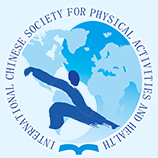Document Type
Abstract
Keywords
personalized exercise prescription, aerobic exercise, resistance training, anxiety, college student, COVID-19
Publication Date
2-2023
Abstract
The COVID-19 pandemic has seriously increased anxiety prevalence among the public, including Chinese college students. However, many exercises cannot be performed as usual under the stay-at-home order. The purpose of this study was to evaluate and compare the effect of personalized individual aerobic-exercise and resistance-training prescriptions on anxiety in college students during the COVID-19. This was a 12-week three-arm randomized control trial using the intention-to-treat principle. Sixty-six college students with anxiety were recruited and randomized into aerobic-exercise (AE), resistance-training (RT), and health-education group (HE). AE and RT groups also received health education. Measures on anxiety and physical activity included Zung Self-Rating Anxiety Scale (SAS), Chinese College Students Mental Health Scale - Anxiety Subscale (CCSMHS-AS) and International Physical Activity Questionnaire-Short Form (IPAQ-SF). All data were collected at the baseline, 4, 8, 12 weeks and 4-week post-intervention. All participants completed the intervention and measurements. The mean (SD) of SAS, CCSMHS-AS score and physical activity was 56.36 (5.63), 19.27 (4.56), 1306.57 (1421.19) (met-min/week). After the intervention, 78.79% of anxiety participants improved from anxiety to “normal”. Participants in all groups showed a statistically and clinically significant improvement after 12-week intervention (p < 0.001). Moreover, such improvement was well-maintained in RT and HE group as there were no significant differences in SAS and CCSMHS-AS at 4-week post-intervention compared to 12 weeks (p > 0.05). However, the SAS score of participants in AE group showed a significant increase during the 4 weeks after intervention (p < 0.05). No significant differences were observed in the effect of AE and RT on anxiety at each time-point (p > 0.05). PA of participants in AE and RT group represented a significant improvement at 4-week post-intervention compared to baseline (p < 0.01). Personalized individual aerobic-exercise and resistance-training combined with health-education resulted in a similar effect on reducing anxiety and improving physical activity, and the effect was better than health education alone. Furthermore, the effect of resistance-training and health-education on reducing anxiety was more stable than that of aerobic-exercise. We recommended 45- to 60-minute home-based individual exercise (including 30- to 40-minute main exercise) with progressive moderate-to-high intensity, 3 times/week for at least 12 weeks for those students with anxiety during the COVID-19 pandemic.
DOI
https://doi.org/10.18122/ijpah.020103.boisestate
Recommended Citation
Zhao, Yuanhui; Wang, Wenxing; Gao, Fang; Cui, Bowen; Hu, Chun; Yu, Wenlang; Wang, Mengdie; and Ren, Hong
(2023)
"Effects of Personalized Aerobic-Exercise and Resistance-Training Prescriptions on College Students with Anxiety During the COVID-19,"
International Journal of Physical Activity and Health: Vol. 2:
Iss.
1, Article 3.
DOI: https://doi.org/10.18122/ijpah.020103.boisestate
Available at:
https://scholarworks.boisestate.edu/ijpah/vol2/iss1/3
Included in
Exercise Science Commons, Health and Physical Education Commons, Public Health Commons, Sports Studies Commons


